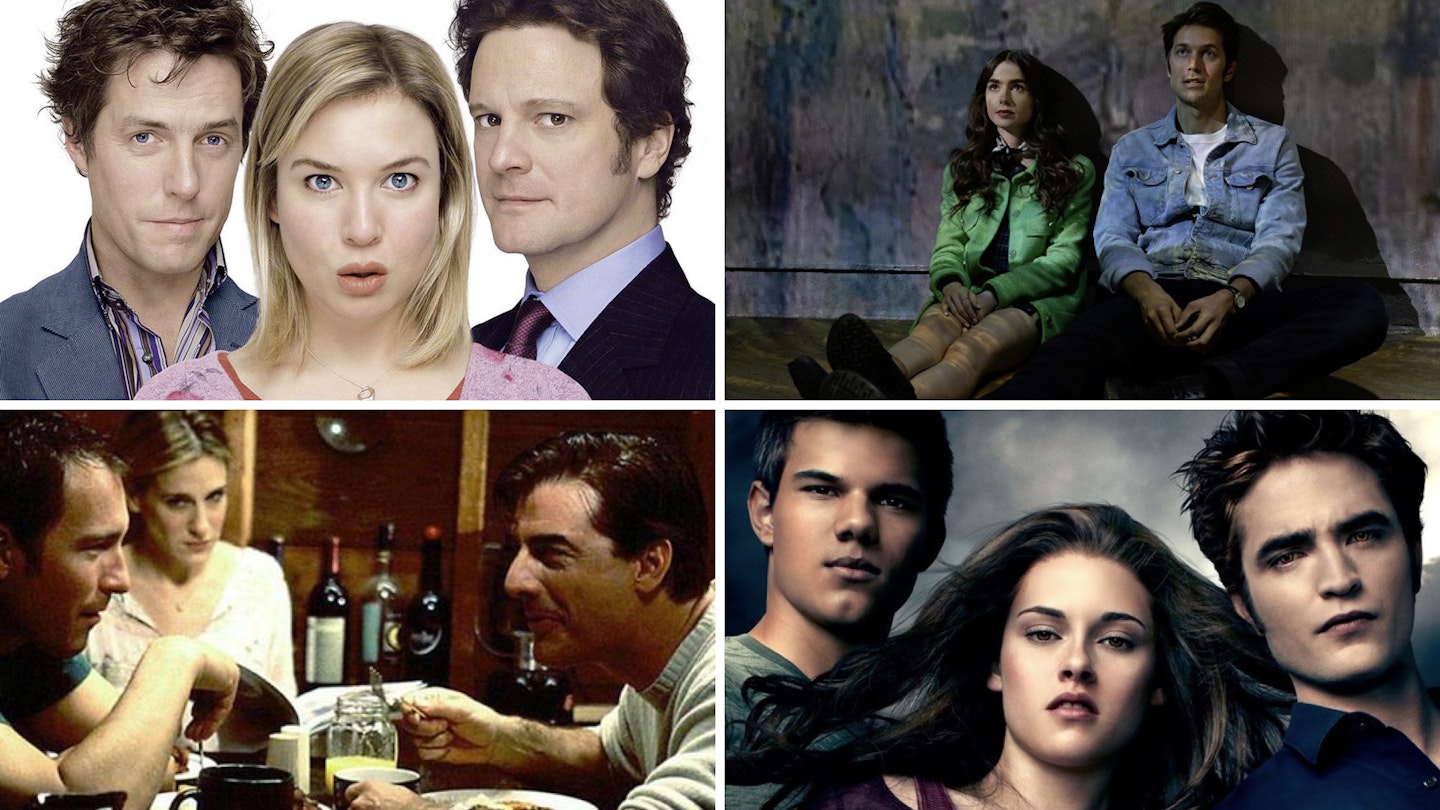It is a truth universally acknowledged, that a single man in possession of a good fortune, must be in want of a wife. Unfortunately for the wife in question, however, the single man may well be, well, doubled. In history’s greatest romances, the love triangle reigns supreme.
I was pondering the concept this week thanks to the huge success of Emily In Paris, which followed a naive young American to the City of Lights. Amidst the work dramas and new friendships, she initially finds herself drawn to two men: Gabriel, a hot chef, and Antoine, a businessman with a love of La Perla lingerie. Later, Antoine steps back and Mathieu - a suave fashion type - enters the fray. It’s an enjoyable, gentle drama, placing Emily at the peak of the pyramid of whimsical, romantic entanglement, and while the drama of juggling these two suitors is not the only subject of the series - and she also finds herself in a separate, friendship-risking triangle - it’s a definite entry in the catalogue.
Emily is merely the latest player in such a game. Guinevere had the King of Camelot in her thrall, but she couldn’t resist Lancelot’s lustful advances. Elizabeth Bennet had to choose between Mr Darcy and Mr Wickham. Her successor, Bridget Jones, couldn’t decide between Mark Darcy and Daniel Cleaver. Sabrina - the divine Audrey Hepburn film - sees the eponymous heroine fall for two brothers, as you do. Carrie Bradshaw was stuck between Aidan and Big. Andy Sachs of The Devil Wears Prada bounced between curly-haired cook Nate and spiritual equal Simon Baker. In Pearl Harbour, Kate Beckinsale’s Evelyn is so torn between Ben Affleck and Josh Hartnett that one imagines she must have felt a little relieved when one of them got shot. Bella Swan spent at least one Twilight film wondering if she should go out with a blood-sucking demon or a boy who smelled of wet dog. In short, a woman in a romantic screen setting will, more often than not, need two leading men.
They are all classics of cultural love triangles, but aren’t they a little too common? At a dinner party last night - fewer than six people, no blue soup - I asked some friends if they had ever been in a comparable situation. Not a mere overlap between an ex and a new prospect. Not going on Tinder dates with two different men in the space of a week. A genuine, all-consuming, distracting desire to be with two men who are both attracted to you. The answer was a resounding ‘no.’
So why do they keep cropping up? Is it about female desire? The seductive, subversive idea that a woman can have two sexual targets? Is it about male hierarchy, a cliche that tells a woman that she is not only an object of lust to one man, but two? After all, many of the men named above seem to be more concerned with winning their prize as if at a fairground stall, beating their adversary, than actually wanting to be with the woman in question.
First of all, films and TV programmes are not real life. They reflect reality, but if they are going to draw and audience then then need to twist it and lift it into a new, more appealing package. Most of us, if we’re honest with ourselves, will accept that we would not pay £15 - not including popcorn - to watch ourselves mirrored on the big screen, going on a few mediocre Tinder dates with a nice, if uninteresting date, before accepting that they will probably do sufficiently for a first husband. We need a little fantasy, a little drama, and there is nothing more inherently conflicting than an explicit conflict: Man A, or Man B?
But it’s more than that. If romance simply required fantasy then we would see far more capers where a romance unfurls amidst an adventure of some kind - say, Romancing The Stone, The Tourist, Knight And Day. Instead, simple romantic comedies where a woman must choose between the bad boy and the charming gent are rewritten, recast and rereleased again and again. And again.
Somehow, one simple fallacy is the greatest fantasy of all: the ambition of choice. The idea that you, a normal woman, with a normal life, could possibly find not one eligible man, but two. Not only that. They both desire you, and the choice of which man ends up meeting you at the end of the aisle of a church is yours alone. In this world, full of cruelty, of commitment phobes, of reluctant men who can barely be persuaded to meet our friends or to meet us for a second date, we are so starved of true romance that the concept of being truly wanted by two eligible men is, for some of us, almost mythical.
As a trope, love triangles depend solely on the sense of helplessness that they spin our heroine into. She will be indecisive, wondering which man to love, perhaps even loving both of them before she makes her ultimate decision. Heaven forbid, she may even sleep with both of them. But, deep down, they remain prevalent for a far less complicated reason: for 90 minutes, or perhaps a few, neat episodes, a woman can imagine that there are two interesting, interested men who might just love her.
Just the way she is.
READ MORE: The One Unforgivable Social Media Rule Emily In Paris Breaks
READ MORE: Why Sylvie Is The Real Fashion Star Of Emily In Paris
